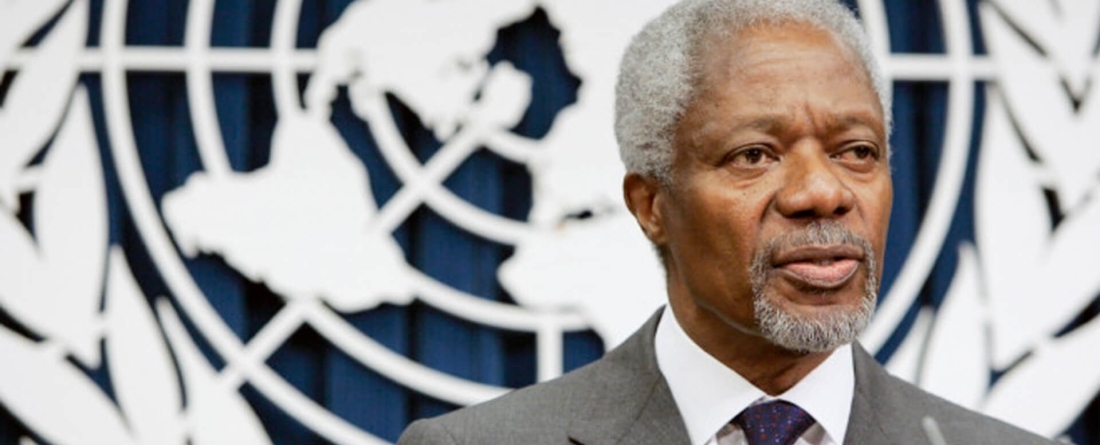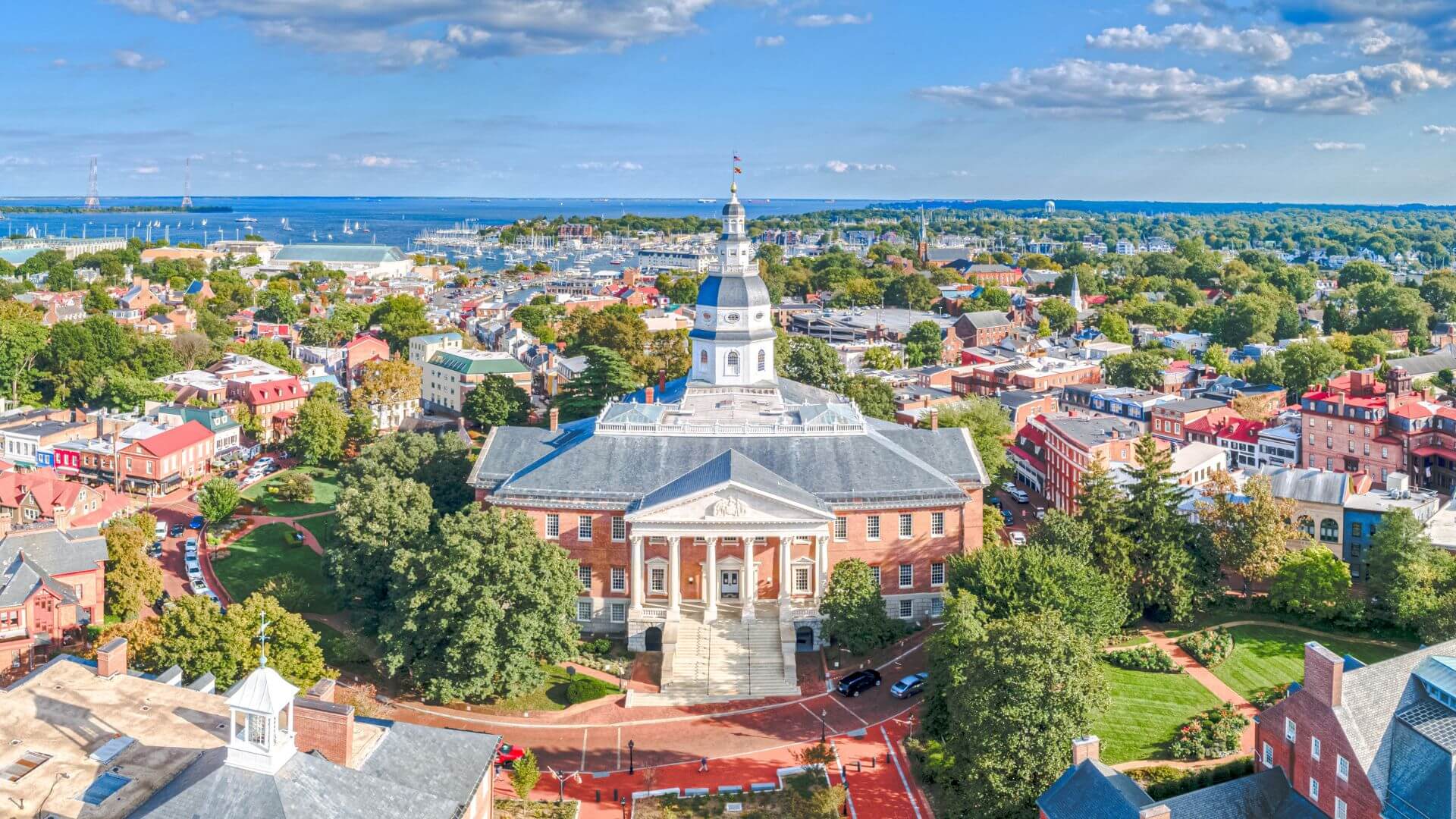
As our country and the world face historic challenges, the School of Public Policy focuses on developing students who can not only navigate these difficult times for themselves and their own careers, but who can also provide the leadership that our communities, our country and our world desperately need.
Leadership is best learned from leaders – watching them in action, dialoguing with them, hearing how they conceive of the world around them and the role of a leader in engaging it. To this end we will bring a number of leaders in different spheres of activity to the school to engage with us on the subject of leadership in troubled times.
We had planned to launch the series this fall with Kofi Annan, the 7th Secretary-General of the United Nations, who led the global organization through a particularly fraught period of its history, and a leader with whom I had the distinct privilege of working closely during the most difficult period of his tenure. Unfortunately, just as classes were set to open this fall, the world lost Kofi Annan, a quiet giant among men.
Since he will now not join us, I thought that I would reflect on the lessons on leadership I learned from working with him. While a poor substitute, I hope it can open our discussion as a school family on this crucial topic.
Kofi Annan knew exactly who he was and where he came from, and he used that understanding to develop his own successful leadership style. He was the first Secretary-General from Sub-Saharan Africa and he brought a distinctly African style of leadership to the world, at a time when the problems among great powers, in the Middle East, Europe, Africa and elsewhere required a new approach. He didn’t shy away from his identity, or his own history, rather he used it, authentically, openly.
One of his defining qualities as a leader that he brought with him from Africa, and the village tradition he saw growing up, was that he was the best listener-in-chief I have ever seen. He was naturally eloquent, yet spoke softly, and only when he needed to. He could sit through a long involved meeting fully engaged but mostly silent, uttering only a few sentences – inevitably the ones that would tip the balance or show the way.
Kofi, as we thought of him, despite always calling him “Mr. Secretary-General,” was an inspiration to generations of young people. One day we waded into a group of high school students who were wearing T-shirts reading “What would Kofi do?” He looked at me quizzically. I whispered that these were modeled on an evangelical Christian exhortation in vogue at the time to live your life according to the maxim “What would Jesus do?” With his natural modesty he shook his head at the implied comparison. And yet, he embodied virtues that transcended any specific religion – integrity, selflessness, generosity of spirit, hard work, compassion – that more than earned him the popular designation as “the secular Pope.”
While walking the walk was a key to his leadership, so too was rolling up his sleeves and, well, leading. When he was elected Secretary-General he was the only one to hold the office that had come from the “inside” and he used his knowledge of the organization to remake it for a new age. While his sweeping reform program made a stronger global organization institutionally, he also injected an esprit de corps into the organization that remade its culture. He attracted and retained the best and the brightest. He made room for young people, women and southern voices that had long been underrepresented in the organization. And he nurtured a family feeling even in a huge organization. He always asked after my family, especially “the little ones”, and he waited for the answer. He often coached, “make sure you take care of your little world, or you won’t be able to take care of the big one.” There is a reason that at our family dinner table he was always “Papa Kofi.”
While he achieved significant reforms, the biggest changes he made were in what the institution stood for. As the HIV/AIDS crisis took hold around the world, he called on the CEOs of the world’s largest drug companies to stop price-gouging and to provide generic drugs at cost across Africa and the developing world as the pandemic took its greatest toll on the poorest people in the poorest countries. He became a passionate, persuasive and ultimately successful voice for the voiceless. When the UN failed to stop genocide in the Balkans and Rwanda, he took responsibility and galvanized the global community around “the responsibility to protect,” shifting the very lines of absolute sovereignty on which the foundations of the United Nations were built.
That was vintage Kofi Annan. He was a leader who stood forward not when it was easy, but when it was hard. I observed this personally as the ill-fated U.S.-led war in Iraq in 2004 and subsequent occupation went awry and Washington sought to displace blame to the UN. When the Secretary-General acknowledged that he thought the war was “illegal” the attack on him out of Washington was instantaneous, vicious and prolonged. Billions of dollars of US taxpayers’ money was lost and wasted on the war, but the UN’s Oil for Food program became targeted as the “greatest scandal in history” and the rallying cry of the war’s apologists, despite the fact that the program was created by the US and other Security Council members, and the problems remained largely outside the remit of the Secretary-General. He called and got a thorough investigation of the problems, gave full transparency and addressed the issues within his remit. Notwithstanding, he was constantly made the scapegoat. Throughout, he remained the picture of grace under stress under pressure.
In our current era of staggering polarization, I carry lessons I learned from watching Kofi handle highly charged situations. Shortly after former Venezuelan President Hugo Chavez called out President George W. Bush as the Devil himself on the floor of the General Assembly, the Secretary-General held a private meeting with him. After hearing out a baker’s dozen or so complaints from Chavez, the Secretary-General quietly chided him, “There are no devils here. You are a president. He is a president. Your job is to solve problems. I know you are both capable of that.” Shortly thereafter the hot war of words calmed, opening a window for dialogue. Kofi spoke truth to power – not gratuitously or glibly, but strategically – even as he remained under attack for doing just that.
Leaders need fortitude, but they also need stamina. Kofi was a natural sprinter in college, and walked at a pace throughout his life that would wind Usain Bolt. And yet, when it came to the big races – the wars, the humanitarian disasters, the political reversals, the glacial pace of change – he endured the marathon for the good of others, with stamina, patience and grace.
So now the race is over, and you can rest Papa Kofi. The burdens are ours now.
Rest in Peace sir, in full knowledge that “Peace, Sustainable Development, and Human Rights for All” are a reality for hundreds of millions because of your sojourn on this earth.
By Dr. Robert C. Orr
Dean, University of Maryland School of Public Policy



